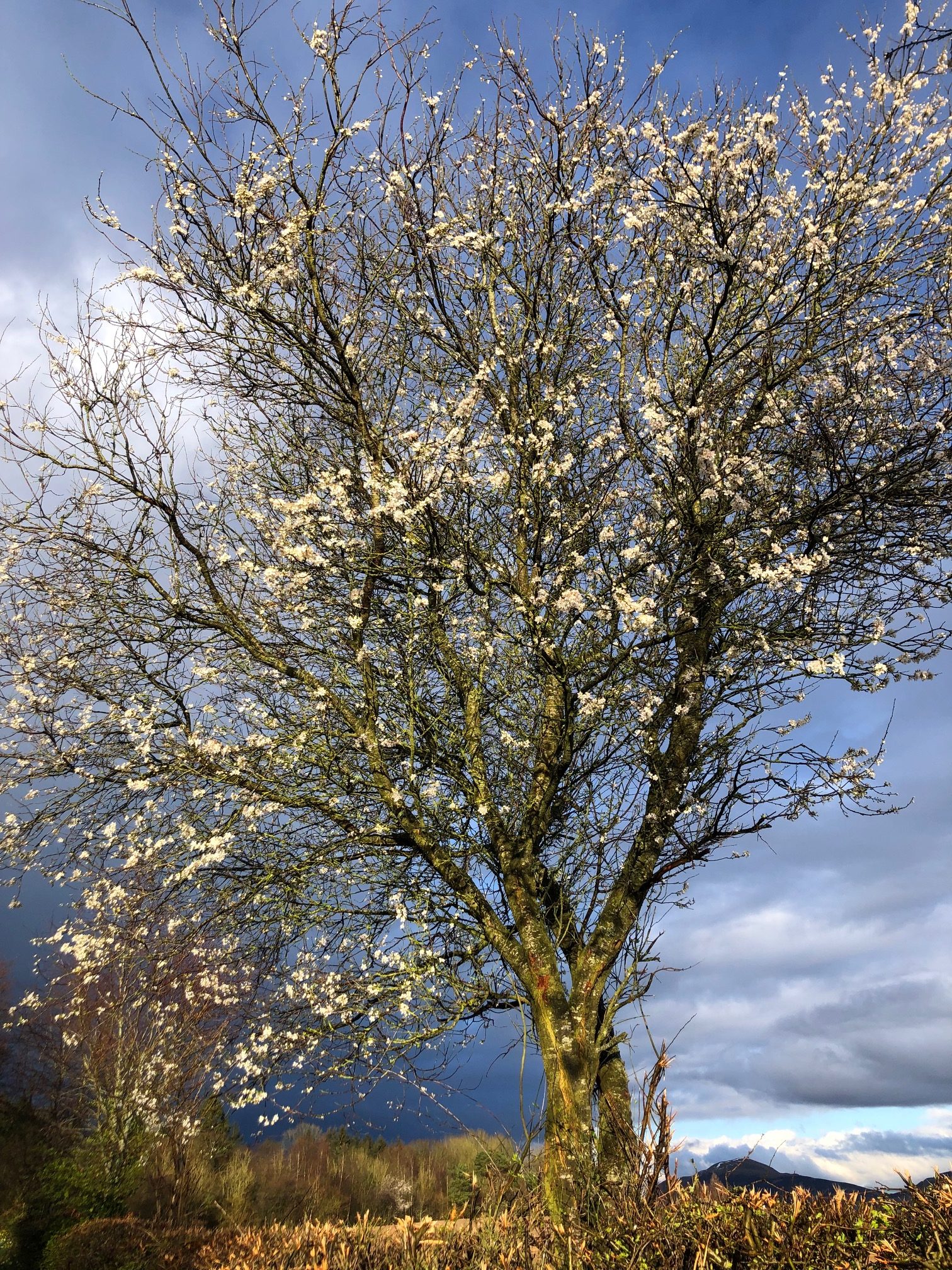This year our Scotland’s Gardens Scheme openings at The Pond Garden are supporting the extraordinary work of Children’s Hospices Across Scotland (CHAS).
Sunshine and showers
I’ve been walking round the garden through sunshine and showers. Mostly showers, it has to be said, some of them torrential. The sunshine blooms in borders at the top of tall stems. So tall you have to look up. Even when grey clouds are glowering, the sight of Inula helenium smiling down at you can make you smile right back. Better still on a bright day, that sunny splash of yellow is spectacular against a deep blue sky.
Catching me unawares, it’s often enough to make me gasp though I should be used to it by now. Inula, native to temperate parts of Europe, Asia and Africa, grows well in the damp ground of Pond Garden and has been spreading happily for several years. It’s always a welcome surprise.
July is not my favourite month in the garden. In Scotland it’s often a strangely disappointing month. By midsummer the fresh promise of a new growing season has begun to fade to a more unsettled reality. Trees are a heavier green. Early herbaceous plants are setting seed. Frothy heads of flowering grasses are beaten down by heavy rain and once again I regret not staking all the flowering clumps in the borders round the house. Look at Lucifer! (Crocosmia)
But I know we are lucky. Rain has revived parts of our woodland and meadows which were suffering in the heat and drought of June. Watching flocks of young birds, bees – insects of many kinds – feasting on what seems like an abundance of food all round us, I’m grateful to the jet stream which according to the Met Office is responsible for bringing weeks of low pressure to the UK. Perhaps it would be nice to be a degree or two warmer than today’s 16C. But every day brings news of the burning reality of climate change in blistering heatwaves reaching 50C in many places across the world. This year there can be few temperate zones in the natural habitat of Inula species.
Not too late
In Britain we have been careless with our natural heritage (we can take no credit for the cooling Jetstream) but a rousing edition of the latest Scottish Wildlife Trust magazine reminds us that it’s not too late to take action to reverse the destruction. The increasingly (and inspiringly) outspoken RSPB says the same in its summer/autumn edition. I feel that hope mixed with a sense of urgency glowing in the colours of the garden.
The variety of animals, birds and plants I see on walks round the garden every day feels more precious than ever. This morning I returned to the house to find a young red squirrel enjoying sunflower husks dropped by birds at the feeder in the birch tree by the front door. It’s an extraordinary experience when you look such a beautiful wild creature in the eye. A timeless moment. We were less than two
metres apart. He (or she) soon returned to eating, looking up to check on me every now and then but seemingly quite relaxed until I moved and the moment passed. There was a flurry of red as the squirrel leaped effortlessly from branch to branch, from birch to oak and lime and pine. And home?
I hope we can keep expanding the variety of plants that make our gardens a safe place for so many creatures. It’s somehow comforting to find (from Wikipedia ) that the robust yellow flowering plant towering above me has been brightening summer days for millenia – the name Inula was used by the Romans, helenium derives from Helen of Troy. According to Nature and Garden its healing powers were said to be prescribed by Hippocrates 450-370 BC and monks grew it as a medicinal plant in the Middle Ages.
For me the healing comes in that resolutely sunny splash. We’ll do our best to keep it growing.
You’re welcome to walk in the Pond Garden – we can’t always promise sightings of red squirrels but there’s always something to see.
Although months of building work disrupted earlier plans for spring walks – through snowdrops, daffodils and bluebells – we are delighted to welcome small groups by arrangement. Just use the Contact form to fix a day and time. We would love to see you as we keep making new discoveries during this eventful summer…not least the uplifting determination of plants. They want to survive!




0 Comments
1 Pingback